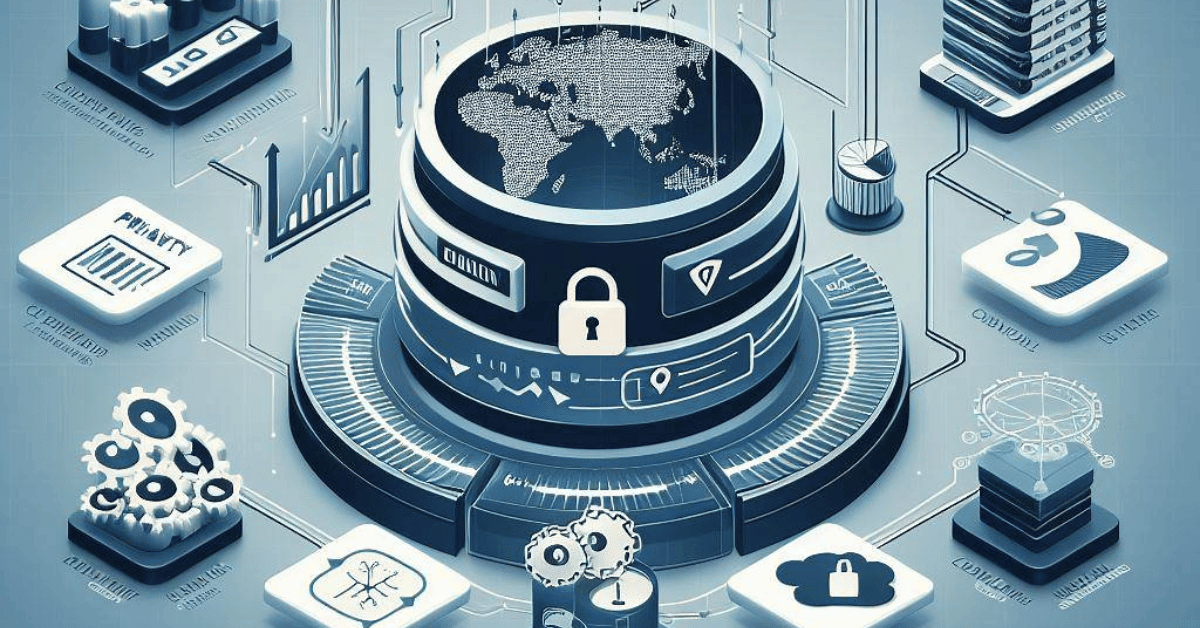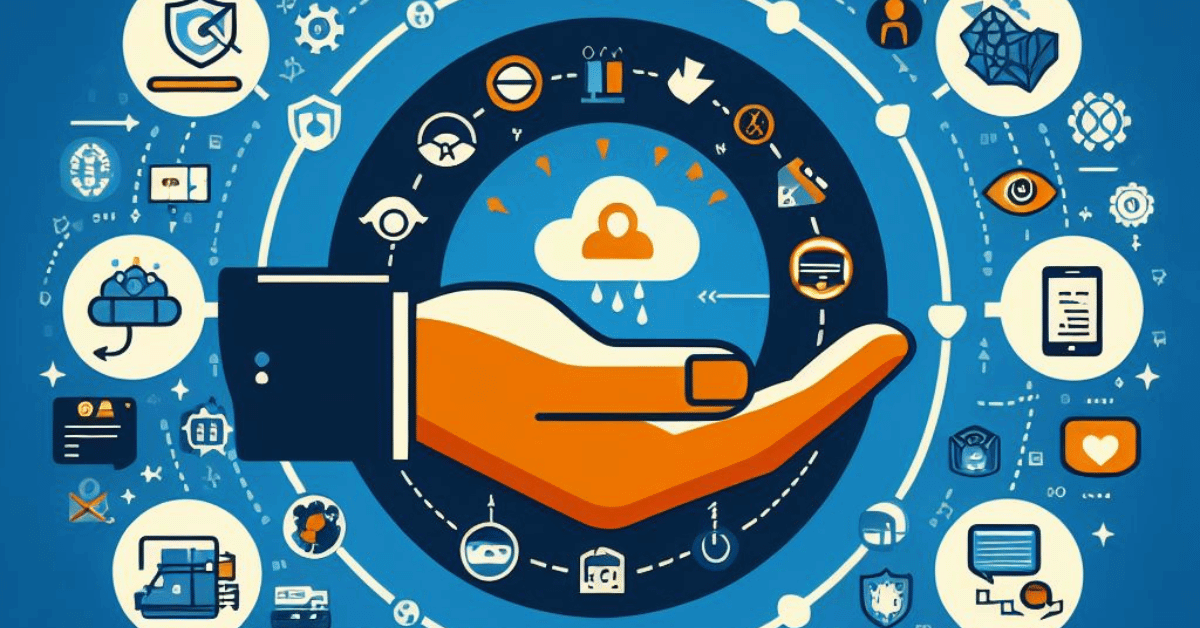As data mining techniques become more advanced, there will be increased potential for extracting personal information, potentially compromising individual privacy. Balancing the benefits of data analysis with privacy concerns will be a significant challenge in the future.
With the rapid advancement of technology and the ever-increasing amount of information available, the intersection of data mining and privacy is becoming a highly contentious issue. As we move further into the digital age, the consequences of data mining on privacy are becoming more prominent. Together, we will delve into the understanding of data mining and privacy, explore the impacts of data mining on privacy, examine the future implications of data mining, and discuss strategies to mitigate the impact of data mining on privacy.
Understanding Data Mining and Privacy

Before we can fully comprehend the possessions of data mining on privacy, we must clearly understand both concepts.
Data mining is a powerful process that involves extracting knowledge and patterns from vast data. It goes beyond simply collecting and storing information; it involves analyzing large datasets to discover meaningful insights, make predictions, and uncover hidden relationships. Data mining techniques utilize algorithms and statistical models to identify patterns, trends, and associations within the data.
Imagine a scenario where a retail company wants to understand the buying behavior of its customers. By analyzing their purchase history, demographics, and browsing patterns, data mining can help identify patterns such as which products are frequently bought together or which customers are more likely to purchase. This information can then be used to optimize marketing strategies, personalize recommendations, and improve overall customer satisfaction.
However, increasing data mining techniques raises concerns about privacy in the digital age. With the digitization of personal information and the proliferation of online platforms, privacy becomes paramount to protect individuals’ rights, maintain autonomy, and prevent potential misuse of personal data.
Privacy is not only essential for individuals but also for organizations and societies as a whole. In today’s interconnected world, where data is considered the new currency, organizations must safeguard sensitive information to maintain trust with their customers and stakeholders. Breaches in privacy can lead to reputational damage, legal consequences, and loss of business.
Moreover, privacy is closely linked to ethical considerations. The indiscriminate collection and use of personal data without consent can infringe upon individuals’ autonomy and raise questions about the ethical implications of data mining practices. Organizations must establish transparent data privacy policies and ensure that individuals have control over their personal information.
As technology advances, data mining and privacy boundaries become increasingly blurred. On one hand, data mining enables organizations to gain valuable insights and improve decision-making processes. On the other hand, it raises concerns about the potential misuse of personal data and the erosion of privacy rights.
Therefore, balancing the benefits of data mining and privacy protection is crucial. It requires robust data protection laws, ethical data mining practices, and informed consent from individuals. By ensuring that data mining is conducted responsibly and with respect for privacy, we can harness the power of data while safeguarding individuals’ rights and maintaining trust in the digital age.
The Intersection of Data Mining and Privacy
Although data mining has shown immense potential in various fields, its effects on privacy should not be overlooked.
Data mining is a powerful tool that gathers and analyzes massive amounts of personal data. This data encompasses various aspects of individuals’ lives, including personal information, browsing habits, social media interactions, and online behavior. With such vast data, data miners can create detailed consumer profiles, track individuals’ movements, and influence decision-making processes.
However, the implications of data mining for privacy are significant. The extensive collection and analysis of personal data raise concerns about surveillance, discrimination, and potential privacy breaches. The knowledge that someone constantly monitors and analyzes our actions can be unsettling and intrusive. It raises questions about the right to privacy and the potential misuse of personal information.
How Data Mining Impacts Privacy?

Data mining techniques often involve using algorithms to abstract patterns and insights from large datasets. These algorithms can uncover hidden correlations and trends, enabling businesses and organizations to make knowledgeable decisions and predictions. However, data mining relies heavily on personal data, which can be obtained from various sources, including social media platforms, online shopping websites, and public records.
Imagine a scenario where you browse an online store for a new pair of shoes. You provide your name, address, and payment information to complete the purchase. Unbeknownst to you, your browsing history, purchase behavior, and personal details are being collected and analyzed by data mining algorithms. This information can create a consumer profile that reflects your preferences and predicts your future buying habits. While this may seem convenient for targeted advertising, it also raises concerns about the invasion of privacy and the potential for manipulation.
Moreover, data mining can lead to comprehensive profiles beyond consumer preferences. Data miners can gain insights into individuals’ political affiliations, religious beliefs, and health conditions by analyzing social media interactions, online behavior, and other personal data. This level of intrusion raises questions about the boundaries between public and private life and the potential for discrimination based on personal attributes.
The Balance Between Data Mining and Privacy
Striking a balance between data mining and privacy is crucial. While data mining techniques provide valuable insights and benefits, it is essential to ensure that privacy is not compromised.
One approach to achieving this balance is implementing effective safeguards and regulations. Governments and organizations must establish clear guidelines for collecting, storing, and using personal data. These guidelines should address issues such as consent, data anonymization, and the right to be forgotten. By setting these boundaries, individuals can have more control over their personal information and ensure it is used responsibly.
Another aspect to consider is the transparency of data mining practices. Organizations that engage in data mining should be open and honest about their data collection methods and purposes. This transparency lets individuals make informed decisions about sharing their personal information and encourages organizations to adopt ethical data mining practices.
Furthermore, individuals should be empowered to protect their privacy by using privacy-enhancing technologies. These technologies, such as encryption and anonymization tools, can help individuals safeguard their data while still benefiting from the insights provided by data mining techniques.
In conclusion, the data mining and privacy intersection is complex and multifaceted. While data mining can potentially revolutionize various fields, it is essential to address its privacy concerns. By implementing effective safeguards, promoting transparency, and empowering individuals, we can strike a balance that allows for the responsible use of data mining techniques while respecting individuals’ privacy rights.
Future Implications of Data Mining on Privacy
As technology continues to evolve, the future implications of data mining on privacy are both intriguing and concerning.
Predicted Changes in Data Mining Techniques
Experts anticipate significant advancements in data mining techniques. New algorithms, artificial intelligence, and machine learning will further enhance the accuracy and efficiency of data mining. However, these advancements should be accompanied by adequate privacy protections to prevent misuse of personal data.
Anticipated Privacy Concerns and Challenges
As data mining becomes more sophisticated, privacy concerns will inevitably arise. The potential for data breaches, unauthorized access, and unethical data practices are challenges that must be addressed. Close attention should be paid to developing robust security measures and enforcing stringent privacy regulations.
Mitigating the Impact of Data Mining on Privacy
While the challenges may seem daunting, there are strategies that individuals, corporations, and lawmakers can adopt to safeguard privacy in the era of data mining.
Privacy Protection Strategies
People can take proactive steps to protect their privacy. This includes being mindful of the information shared online, using strong passwords, being cautious of phishing attempts, and utilizing privacy-enhancing tools like VPNs and encrypted messaging apps.
The Role of Legislation in Protecting Privacy
Effective legislation is crucial to prevent the misuse of personal data. Governments must enact comprehensive privacy laws establishing clear data collection, use, and storage guidelines. Additionally, robust enforcement mechanisms and severe penalties should be in place to ensure compliance and deter privacy infringements.
The Role of Individuals and Corporations
Privacy protection is a collective responsibility that extends beyond individuals and encompasses corporations.
Personal Responsibilities in Protecting Privacy
Individuals must educate themselves about privacy risks, actively manage their privacy settings, and demand transparency from organizations handling their data. By taking an active role in protecting their privacy, individuals can contribute to a more privacy-aware society.
Corporate Ethics and Data Mining
Corporations must prioritize ethical practices when engaging in data mining activities. The guiding principles should be transparency, consent, and respect for individuals’ privacy rights. Corporations can foster customer trust and mitigate privacy concerns by adopting privacy-centered approaches and responsible data-handling practices.
Key Takeaways
- Data mining offers potential benefits in predicting trends and understanding user behavior.
- There’s an increasing concern about user privacy with more extensive data mining practices.
- Regulations might be imposed to protect user data from misuse.
- Advanced encryption and anonymization techniques will balance data utility with privacy.
- Public awareness and education about privacy rights will become essential.
FAQs
What is data mining?
Data mining analyzes large datasets to extract meaningful patterns and insights.
Why is privacy a concern with data mining?
Data mining can reveal personal or sensitive information about individuals without their consent, leading to potential misuse.
What can be done to ensure data privacy?
Anonymization techniques, strong encryption, and robust data use policies can help ensure privacy.
Will future regulations restrict data mining?
It’s likely that more stringent regulations will be put in place to protect individual privacy in the face of increasing data mining.
Can individuals opt out of data mining?
This depends on the platform and region, but increasing public demand leads to more user opt-out and data control features.
Conclusion
In conclusion, the ever-evolving field of data mining poses significant implications for privacy in the future. It is imperative to strike the right balance between the benefits of data mining and the preservation of privacy rights. By understanding the challenges, adopting proactive strategies, enacting robust legislation, and promoting ethical practices, we can navigate the future of data mining and privacy in a way that respects individual rights and safeguards the well-being of society as a whole.
